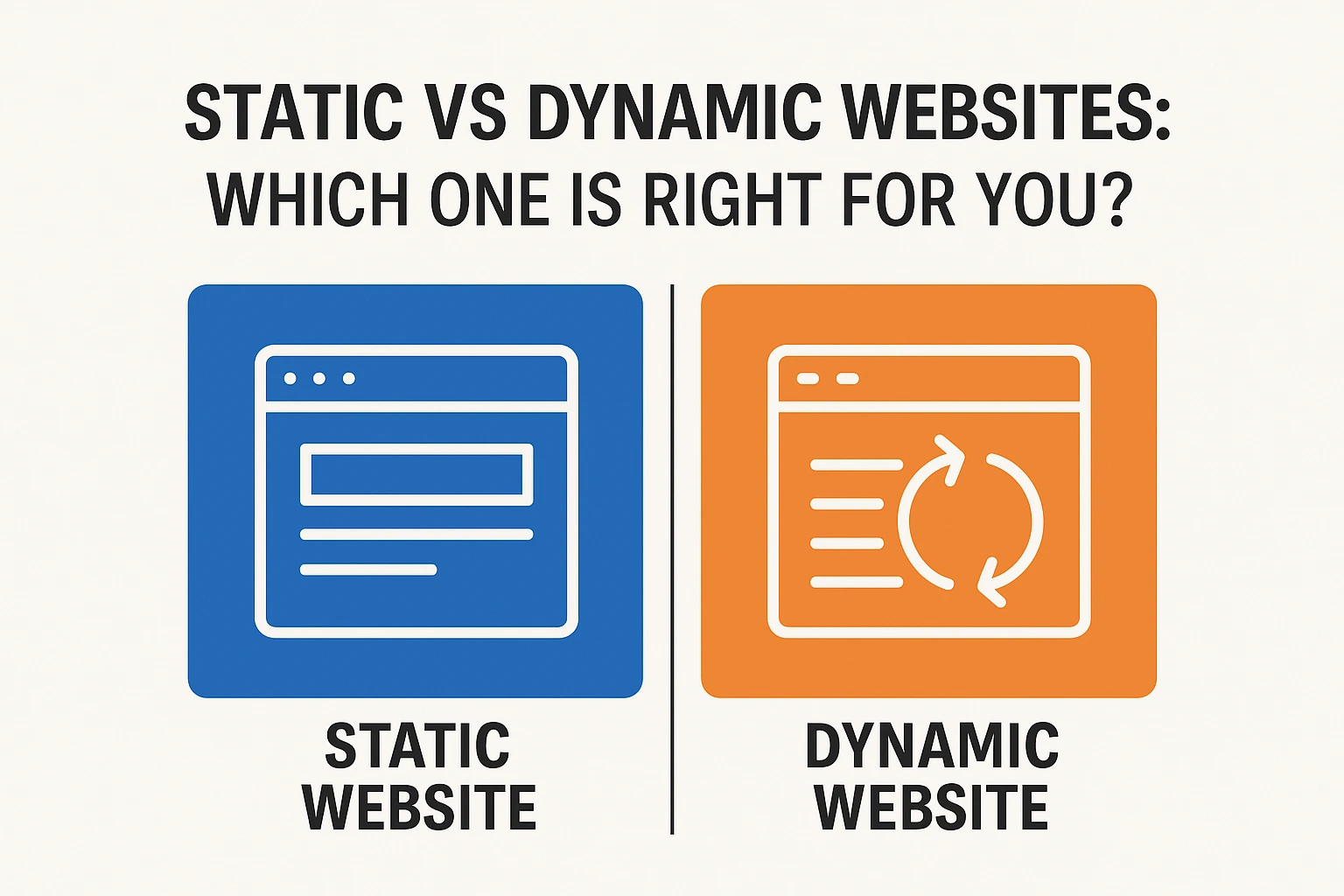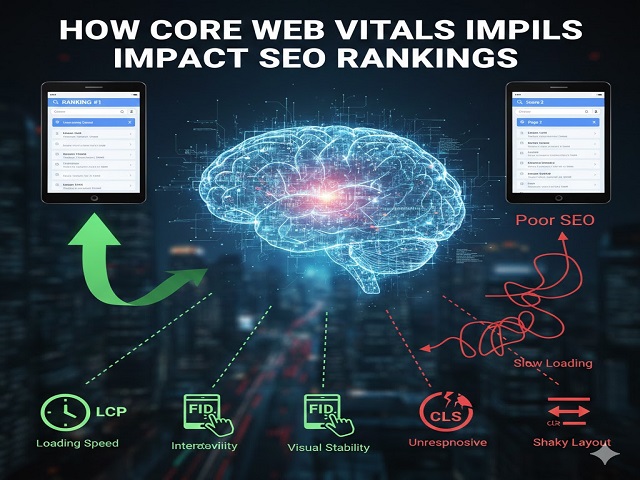Choosing between a static or dynamic website can significantly affect how your brand performs online.
When planning your online presence, one of the first decisions you’ll face is whether to build a static website or a dynamic website. This choice shapes how your site functions, how easily it can be updated, how users interact with your content, and even how you manage SEO and analytics in the long term.
But here’s the catch, many business owners jump into building a website from scratch without truly understanding which type of site aligns with their goals. Both static and dynamic sites have their place. The key lies in understanding your needs and weighing the pros and cons of each structure.
Let’s make everything simpler and help you find the best choice for your business.
What Is a Static Website?
A static website is made up of fixed HTML files, offering simple and dependable pages for your needs visitors. Each web page is hardcoded and delivered to users exactly as it’s stored on the server. This means there are no updates in real-time, no way for users to interact, and very limited backend features.
- Pros of Static Websites:
- We ensure quick loading times by minimizing server-side work. This way, you enjoy a smooth experience.
- Simple to create and maintain.
- This is great for small websites that only need updates now and then.
- Cost-effective to host.
- Cons of Static Websites:
- Difficult to update regularly unless you’re comfortable with coding.
- This might not be the best fit for eCommerce, blogs, or interactive platforms, but it still has its own unique strengths.
- Limited scalability for large or growing businesses.
If you’re creating a basic portfolio, a one-pager, or a landing page for a short-term campaign, a static website may be more than enough.
What Is a Dynamic Website?
A dynamic website, however, employs server-side scripts (such as PHP, JavaScript, or Python) to produce content dynamically. This means the web page content can change based on user behaviour, database inputs, or backend logic.
- Pros of Dynamic Websites:
- This allows users to have experiences that are tailored to their individual preferences.
- Perfect for extensive websites such as blogs, news sites, and e-commerce platforms.
- Easier to manage content through CMS platforms.
- Integrates well with databases and third-party tools.
- Cons of Dynamic Websites:
- More complicated and costly to develop and maintain.
- Needs regular maintenance and technical supervision.
- Slightly slower than static sites (but can be optimized).
A dynamic website works wonderfully for businesses that want to engage users, share fresh content often, offer user logins, or showcase product listings.
Use Case Comparisons
Let’s say you’re a local artist looking to showcase your portfolio. You don’t need advanced features, and you want a quick, cost-effective site. A static website fits the bill.
But if you’re launching an online clothing store that needs a shopping cart, inventory updates, user reviews, and login systems, you’ll need a dynamic website.
Your company’s objectives directly shape the most effective website layout.
What About Hybrid Sites?
Many modern websites blend elements of both static and dynamic frameworks. For example, the homepage may be static for speed, while the product or blog pages are generated dynamically. A good website development company will help you strike this balance for optimal performance and functionality.
This hybrid approach is often the best solution for growing businesses looking to scale efficiently without compromising performance.
Why the Right Website Structure Matters
Making the wrong choice can lead to:
- Difficulty updating content
- Poor user experience
- Slower site speed or high hosting costs
- SEO challenges
- Frustrating redesigns down the line
Whether you’re building a website from scratch or redesigning an existing one, knowing the difference between static and dynamic helps avoid costly mistakes. Don’t follow trends. Choose based on what you really need.
Choosing the Right Solution
Here are a few questions to guide your decision:
- Will you update the content regularly? → Go dynamic.
- Is the site purely informational and low on updates? → Static works well.
- Are you considering expanding your project to include features like login, search, or databases? → You’ll need a dynamic website.
- Are you on a tight timeline and budget? → Think about a simple website that stays the same unless you update it, maybe using a CMS like Hugo or Jekyll.
Do you want to future-proof your business online? → Consult a website development company to assess hybrid options.
Wrapping Up the Web Decision
Deciding between a static website and a dynamic website is more than a technical choice, it’s a strategic one. If you prioritize speed, simplicity, and affordability, static options might be suitable for you well. If your business needs flexibility, interaction, and the ability to grow, a dynamic solution gives you the control and power you need. Often, combining different approaches can give you the best of both worlds, making your experience more balanced and satisfying.
At Savit Interactive, we’ve helped countless businesses navigate these decisions. Whether you’re building a website from scratch, rethinking your digital presence, or seeking expert guidance from a trusted website development company, we’re here to craft solutions tailored to your needs. Our approach goes beyond simple website development; we create digital experiences engineered for optimal performance, high conversion rates, and scalability.
Frequently Asked Questions
What’s the difference between a static website and a dynamic website?
A static website displays fixed content on each page, while a dynamic website generates content in real-time based on user actions or backend data.
Can I have both static and dynamic pages on one website?
Yes, many modern sites use a hybrid model where the homepage or landing pages are static, and other web page sections like blogs or stores are dynamic.
Do I need a dynamic website builder for a simple business site?
Not always. A dynamic website builder is helpful if you need frequent content updates, user interaction, or integrations, but for basic info sites, it may be overkill.
What should I know before building a website from scratch?
Before building a website from scratch, define your goals, target audience, required features, scalability needs, and budget. Then choose the right structure and tools accordingly.
Why should I hire a website development company instead of DIY?
A professional website development company ensures your site is fast, secure, SEO-optimized, mobile-responsive, and aligned with your long-term business goals.




